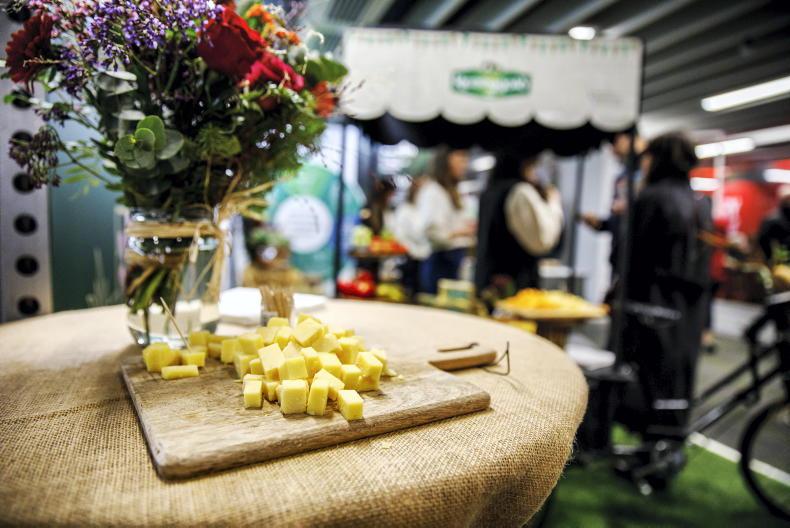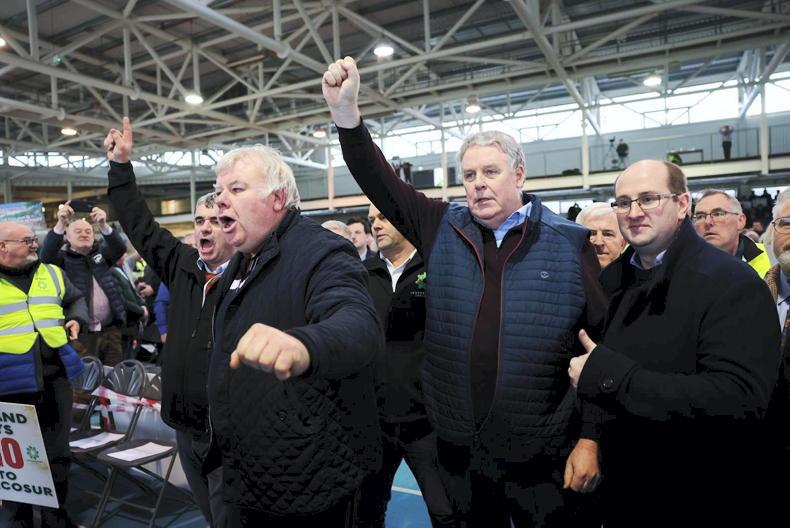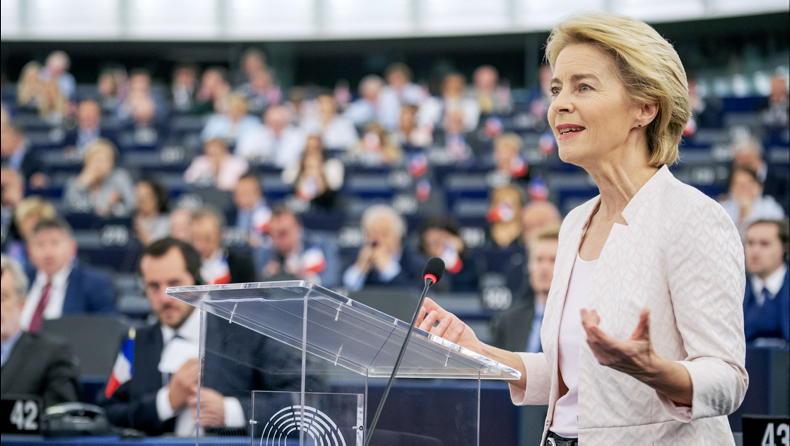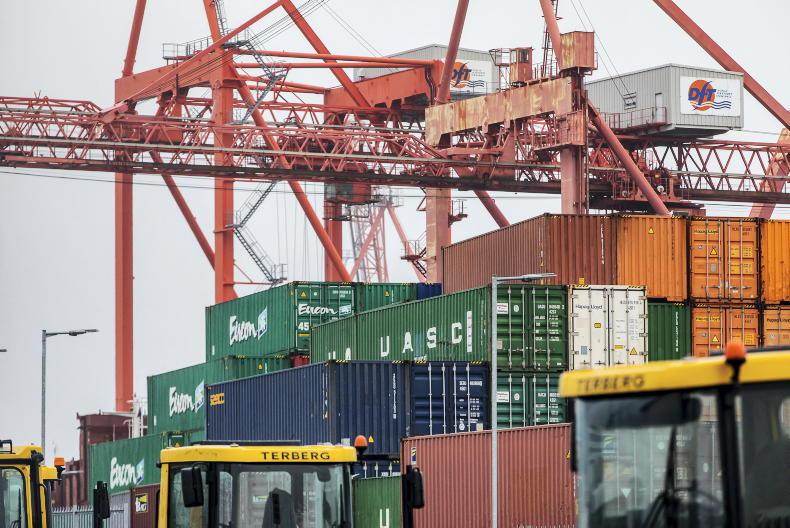In 1992, Bill Clinton rose from relative obscurity (he was the Governor of Arkansas) to become the Democratic Party’s nominee for the presidency of the United States.
He was the outsider, running against President George H Bush, who had been vice-president to Ronald Reagan for eight years before succeeding him.
Clinton focused on the lives of ordinary Americans with the slogan “it’s the economy, stupid” and won.
Thirty-three years later, under the Trump administration, that slogan could be adjusted to “it’s the stupid economy”.
Ten days into the tariff regime, we have had escalating tariff exchanges between China and the USA, the stockmarket lurching like a small boat in a mid-Atlantic storm and the dollar and US bonds losing value.
We need an outbreak of common sense within the Republican Party, before the damage that is being done to companies, pension funds and jobs, both in the US and worldwide, becomes permanent and irreversible.
Republican heartlands are where tariffs hurt US farmers
US politics functions in a different way to that of Irish politics. The president is directly elected by a national vote. To call it a popular vote is slightly misleading, as you can win the popular vote and lose the election - this last happened in 2016, when Hilary Clinton won the popular vote by almost three million votes, but Donald Trump became president.
This is because each state is a mini-election. Win the popular vote in the state and you gain all that state’s votes in the electoral college (with a couple of exceptions in Maine and Nebraska).
Each state has electoral college representation proportionate to population, so winning the larger states becomes key. Only a few of the most populous states are in play - the “swing states” we hear so much about.
Many of these are in the former industrial heartland, stretching from Pennsylvania, through Ohio, into Michigan, Wisconsin and Minnesota.
Of course, Wisconsin and Minnesota are also states with a heavy emphasis on agriculture. Like in most states, rural Wisconsin and Minnesota are more conservative than urban areas and tend to vote Republican. The really rural states are overwhelmingly Republican and carried Donald Trump to the presidency in both 2016 and 2024.
Farmers fear for future
But now, US farmers fear for their future. Labour has been an issue since Trump’s January inauguration, as migrant workers have either left the US or gone to ground for fear of expulsion.
And the tariff war has seen farmers on the frontline. Like all other American people and businesses, imported goods farmers need to buy are much dearer as a result of the tariffs.
And this week, the EU included soybeans, poultry, almonds, oranges and tobacco in their list of products to be subjected to higher tariffs.
Even more significantly, China went in hard, setting 84% tariffs in retaliation at the punitive tariffs put in place by Donald Trump against their exports. And China, with a population of more than 1.4 billion people, is a vital export market for US agriculture, with $36.4bn worth last year alone.
US farmers might be tearing their hair out at how things are turning out for them
The extent of Chinese tariffs, now at 125%, could slow that river of produce to an absolute trickle.
Meanwhile, Donald Trump made a big play of signing a presidential decree reversing regulations to limit the amount of water used in US showers, declaring that he needs a better flow in his shower “to take care of my beautiful hair”.
It would be funny if it wasn’t so serious. I reckon that US farmers might be tearing their hair out at how things are turning out for them.
This week, as we reported in Thursday’s paper, a bill has been prepared that would curb the ability of Donald Trump and his administration to execute a trade war without the consent of the body politic - the elected representatives of both the US Congress and the Senate.
It requires that any tariffs imposed by Donald Trump must be endorsed by both the Senate and the House of Representatives within a 60-day period or would extinguish. The bill was co-sponsored by a Democratic senator - Maria Cantwell - and, crucially, a senior Republican senator - Chuck Grassley.
Donald Trump immediately said that he would veto such a bill. Despite this, seven Republican senators, including the influential Thom Tillis and the wily veteran Mitch McConnell, have supported the bill.
Tillis is from North Carolina and McConnell is from Kentucky - two states that are heavily dependent on agriculture. This week, Tillis asked the trade representative Jameison Greer: “Whose neck do I get to choke if this proves to be wrong?”
What we are witnessing here is Republican politicians separating themselves from the trade policies of the president, their party colleague. There is a growing realisation that there is no grand economic strategy here and that the president is living by his instincts and making ad-hoc decisions.
It might work, but it might not. It is as reckless as it is needless and farmers US agricultural exports are hurting badly.
Meeting
A balanced market
In June 2023, I accompanied an Irish Farmers Association (IFA) delegation to Washington DC.
Among the meetings held was one with the senior staffers of both the Republican and Democratic leaders on the Senate’s agriculture committee.
What was interesting was how both men agreed that they wanted to see a liberalisation of trade. This was a theme taken up by agriculture secretary Tom Vilsack, who gave the IFA over an hour of his time.
Vilsack echoed Donald Trump in terms of a perceived unfairness in the terms of trade for agricultural goods between the US and the EU.
“The EU has the appearance of openness, but, in reality, the implementation of the trading system results, in our view, is a fairly closed market,” he said.
“This is not a balanced relationship ,when you look at it in dollars and cents - there is a large trading deficit.”
He was referring there to the EU’s ban on hormone-treated beef and to GMO crops, which I spoke of last week.
But Vilsack then elaborated on his view that trade barriers should be lowered, not raised. “We keep asking for more openness and a better understanding of a science-based system, a rules-based system.”
That is the opposite of the current dynamic emerging from the Trump administration.
Now at least we have a 90-day pause on elevated tariffs for all countries bar China. Don’t forget, the 10% tariff, which must surely be in breach of WTO rules, is still in place. However, there is some breathing space. And we must make the most of the little bit of time that now exists for dialogue.
What can Irish politicians do?
Is there anything that Irish politicians can do? Government politicians have to be careful how they speak and where they speak - the Trump administration are particularly thin-skinned. But there might be better opportunities for TDs and MEPs not in government.
In particular, we should engage with those Senate Republicans from red states that heavily supported Donald Trump and whose farmers are badly affected by this trade disruption.
The current chair of the Senate agriculture committee is John Boozman from Louisiana. I would like to see the chair of the Oireachtas agriculture committee meeting with Boozman and his Democrat counterpart Amy Klobuchar from Minnesota.
Except, unfortunately, we don’t have a new chair for the Oireachtas agriculture committee. The Oireachtas committees have been in limbo due to the procedural wrangle over speaking time for Government-supporting Regional Independent TDs.
It’s now over five months since the general election, but the political parties only carved out the chairs of the various committees last week and it will probably be May before they are installed.
A government TD will succeed Jackie Cahill to chair the agriculture committee. Perhaps they will make it a priority to engage with their US counterparts.
Meanwhile, Irish MEPs, who worked with government to help keep dairy and spirits out of any tariff retaliation, can implore the European Parliament’s agriculture committee to engage with their Washington counterparts.
Veronika Vrecionava, from Czechia, chairs the committee. As a member of the European Conservatives and Reformists, she is politically closer to the Trump administration than most MEPs. Perhaps that can actually help the conversation to flow.
Radical administration
What people are only coming to realise, as the main players in the Trump administration come into focus, is just how fringe these people and their worldview are, or were until Trump was voted into office advancing their rather radical right-wing agenda.
This administration is much further from the mainstream than Ronald Reagan or Richard Nixon were. Now, they are determining the course of the world’s most powerful economy and setting it in a radically different direction to anything we have seen in recent decades.
How deeply does Donald Trump believe in his “America first” policy, which intends to repatriate manufacturing back into the United States?
He certainly never practiced what he has been preaching. His Trump bible, launched last year, was printed in China. The MAGA (Make America Great Again) hats were also produced in China. It’s so ironic that Alanis Morissette could rewrite her biggest hit for a new generation.
Trump’s tariff guru is Peter Navarro. Allegedly, he was recruited to the Trump campaign in 2016 after Jared Kushner, Donald Trump’s son-in-law, was impressed by the title of one of Navarro’s many books, entitled 'Death by China'.
In it, as in many of his books, Navarro quotes an economics expert named Ron Vara. It gradually emerged that Ron Vara does not exist.
He is a figment of Navarro’s imagination, his name being an anagram of Navarro. For some people, that would be a red flag, sort of like Michael Scott in TV show 'The US Office'.
This time last year, Peter Navarro was in jail, sentenced to four months in prison for contempt of Congress over his refusal to comply with a subpoena to the US congressional hearing into the 6 January attack on the Capitol.
Now, he is watching as Donald Trump enacts the policy he has long advocated - high tariffs as an attack weapon of a powerful economy.
Navarro is only one of a wide range of formerly fringe activists who have been catapulted into positions within government. Few are to the forefront of world affairs to the extent that Navarro is, but many are wielding influence in ways that may yet be consequential.
It’s all the more important that Republican politicians in the Senate and the House of Representatives step up to fulfil their democratic mandate.
And it’s important that Irish and EU politicians engage in an open and constant dialogue with them, to show a willingness to work together with them to plot a course that is navigable for all of us.









SHARING OPTIONS